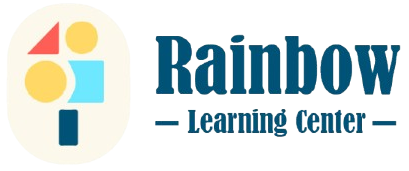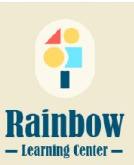The HEI Curriculum
What is the HEI Curriculum?
A brief explanation of the HEI approach.
The HEI curriculum is a research-based educational framework designed to foster holistic development in young children. It integrates social-emotional learning, cognitive development, and physical growth to prepare children for lifelong success.
Core Principles:
- Hands-On Learning
- Individualized Attention
- Emotional Intelligence Development
- Collaboration and Communication Skills



Why It Works:
Improved School Readiness
Children following the HEI curriculum demonstrate a 30% improvement in school readiness scores compared to non-HEI peers.
Enhanced Social-Emotional Skills:
85% of children in HEI programs show significant improvement in conflict resolution and teamwork skills within six months.
Cognitive Development Gains:
Studies show that children participating in HEI programs develop problem-solving and critical-thinking skills 25% faster than the national average."
Parental Satisfaction:
Over 90% of parents report high satisfaction with the HEI curriculum, citing noticeable academic and personal growth in their children.
Long-Term Outcomes:
Graduates of HEI-certified programs are 20% more likely to excel in literacy and numeracy assessments by age 7.
Since adopting the HEI curriculum, 100% of children under our care have met or exceeded developmental milestones in emotional regulation and communication skills within their first year.
Parent Testimonial:

FAQ's
The HEI (Holistic Education and Innovation) curriculum is a comprehensive educational framework designed to support the well-rounded development of young children. It emphasizes fostering growth across all areas of a child’s development—cognitive, social-emotional, physical, and creative—using research-based methods and innovative teaching strategies.
- Holistic Development:
The curriculum focuses on nurturing every aspect of a child’s growth, helping them build essential skills for school and life. - Personalized Learning:
HEI recognizes that every child learns differently. Activities are tailored to meet individual learning styles and developmental needs. - Social-Emotional Learning (SEL):
Children are guided to develop emotional intelligence, empathy, and effective communication skills through structured interactions and play-based activities. - Hands-On and Experiential Learning:
Learning is grounded in real-world experiences. Activities encourage exploration, curiosity, and critical thinking. - Play-Based Education:
Play is central to the curriculum, ensuring children learn in a joyful, engaging way while developing problem-solving and teamwork skills. - Focus on Creativity and Innovation:
Artistic and creative activities are incorporated to inspire imagination and innovative thinking. - Why Parents Choose the HEI Curriculum
- Proven Effectiveness: Children in HEI programs often demonstrate higher school readiness and better social-emotional skills.
- Safe and Inclusive Environment: Emphasis on diversity and inclusion ensures every child feels valued and supported.
- Lifelong Benefits: The curriculum equips children with foundational skills for future success in academics and interpersonal relationships.
- Focus on Holistic Development
- HEI Approach: Prioritizes cognitive, social-emotional, physical, and creative growth equally, ensuring children develop well-rounded skills.
- Others: Many programs may emphasize academic skills alone, overlooking emotional intelligence, creativity, or physical development.
- Individualized Learning Plans
- HEI Approach: Recognizes that every child learns at their own pace. Activities are customized to support unique strengths, interests, and developmental needs.
- Others: Often follow a one-size-fits-all approach, which may not accommodate different learning styles.
- Social-Emotional Learning (SEL) Integration
- HEI Approach: Embeds SEL into the curriculum, teaching empathy, self-awareness, and effective communication as core life skills.
- Others: SEL is often an add-on or secondary focus, rather than an integral part of daily activities.
- Play-Based and Experiential Learning
- HEI Approach: Uses play as a primary learning tool, allowing children to explore and problem-solve in a hands-on, meaningful way.
- Others: Some programs rely heavily on structured, teacher-led activities, which can limit creativity and critical thinking.
- Emphasis on Creativity and Innovation
- HEI Approach: Encourages imagination and out-of-the-box thinking through arts, open-ended questions, and innovative activities.
- Others: Often focus on rote learning or pre-planned crafts with limited scope for individual creativity.
- Proven Research-Backed Methods
- HEI Approach: Based on the latest research in child development, neuroscience, and educational psychology, ensuring methods are effective and up-to-date.
- Others: May rely on traditional approaches that lack grounding in modern research.
- Diversity and Inclusion
- HEI Approach: Creates an inclusive environment where children from all backgrounds feel valued, fostering mutual respect and understanding.
- Others: Some programs may not actively promote diversity or may lack structured inclusion initiatives.
- By choosing the HEI curriculum, parents are investing in an approach that not only prepares children for academic success but also equips them with essential life skills such as resilience, collaboration, and creative problem-solving.
Contact Us
- Make it easy for parents to reach out with questions about your daycare or the HEI curriculum.

